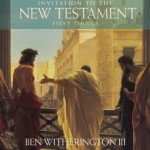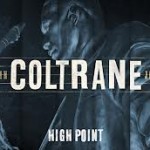(a classroom in Rwanda).
I was listening to a lengthy presentation on the future of education as we know it. It was depressing. Very depressing. The presentation was on the changing face of education, but really it should have been called the growing facelessness of education– education without classrooms, without teachers, without personal interaction, without any incarnational qualities. Just a data transfer by computer and tests, endless small tests. And oh yes—- cheap cost, and sometimes it’s even free.
Americans are suckers for cheap or free. Often they do not even ask the question of whether it is true or not, they just want to know how much the information costs. Cost, not knowledge, not truth, not personal action is the real bottom line in education these days. And it is driving education in all sorts of bad directions. It’s also driving real teachers to drink.
So we listened to a discussion of MOOCs and LOOCs. If you are unfamiliar with those terms you may want to get familiar with them. The former refers to massive online courses offered basically without teachers. It’s just you, and your computer and data. Occasionally you may have access to a ‘coach’. On this model teachers are not expected to actually teach, model good behavior, develop a relationship with students…. nope. It’s a different pedagogy where all the heavy lifting has to be done by the students. Teachers are like coaches who stand on the sidelines, or in some models more like cheerleaders on the side lines because they don’t even call the plays!
And then of course there are all these ‘online’ universities, some of which have no teachers at all! (I kid thee not. Check out the variables with the University of Southern New Hampshire, or Western Governor’s University). And what is driving the train is of course cost. These sorts of online ‘institutions’, I will not call them universities, because they are not, come into states all over the country offer ‘accredited’ online courses for a fraction of the cost of actual live education in a classroom somewhere, and they are putting small colleges out of business, and large universities into a panic. And why are they doing this— you may ask? To make money of course. Not, primarily, to educate people, but to make money, whereas almost all traditional public universities are non-profits (did you know that?).
And the net effect is mostly not good. Mostly we are dealing with considerably dumbed down, watered down content. Only institutions that are offering a blend of both online and on campus courses, and carefully monitoring what they do online so content at least is not watered down, are doing this reasonably well.
The speaker was asked– ‘Are there any forms of education which should not be done strictly online?’ He said “Well I don’t want my airplane pilot to have been trained strictly online, nor my brain surgeon!’ That’s it? Really?
I wanted to ask— ‘What about education that could save somebody’s soul or actually offer them everlasting life?’ Do you really think that the most personal thing of all is adequately offered in such an impersonal way? I think not.
Now I have to say I am not totally opposed to online education, indeed I teach a few courses for Asbury online. It is not an adequate substitute for face to face incarnational education, but it can be a useful supplement or second best. What I do is: 1) have video segments of actual lectures; 2) interact with students every week online when they discuss the questions for the week; 3) grade their tests and papers and give comments and guidance. etc. This is not a perfect system, but as a better than nothing system it is o.k.
But here is the deal. We are training people to be pastors and teachers. This is not simply about a data transfer at all. We need to see how they interact with other people, do they have people skills? We need to see whether they have gifts and graces that tests can never reveal. It is not just about gaining knowledge or skills, it’s about becoming stewards of the mysteries of God.
Furthermore, I do not believe in a model of pedagogy that says ‘the best education is when the ignorant teach themselves’. Nope. Don’t get me wrong, I am all for people being self-starters and self-helpers when it comes to education.
But at the end of the day when you are ignorant about something: 1) you do not have the critical chops to know what sources to use; 2) you cannot tell good information from bad information; 3) you do not know if you have learned something properly or not—— unless you have a teacher, a wise teacher who does know these things and can give guidance. At the end of the day there is a major problem with applying an analytical model of data transfer to a subject in the humanities, including theology or Biblical studies. Why? Because the subject itself is not finally reducible to things that can be measured by numbers. How can you measure grace, or love, or hope, or salvation?
There is an old adage— you get what you pay for. This is normally, though not always, the case with education. If you are being offered education for little or no cost with little or no sacrifice required, with little or no interaction with actual teachers, with little or no travel except from the bedroom to your computer desk, then you should expect to get little or nothing out of it…. other than a pile of data and who knows whether that information is even knowledge, never mind godly wisdom?
Here’s how a great American/British poet T.S. Eliot put the matter in the opening from his classic poem Choruses from the Rock–
The endless cycle of idea and action,
Endless invention, endless experiment,
Brings knowledge of motion, but not of stillness;
Knowledge of speech, but not of silence;
Knowledge of words, and ignorance of the Word.
All our knowledge brings us nearer to our ignorance,
All our ignorance brings us nearer to death,
But nearness to death no nearer to GOD.
Where is the Life we have lost in living?
Where is the wisdom we have lost in knowledge?
Where is the knowledge we have lost in information?
The cycles of Heaven in twenty centuries
Bring us farther from GOD and nearer to the Dust.














